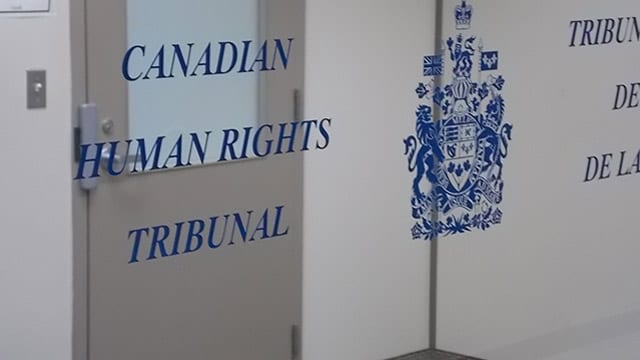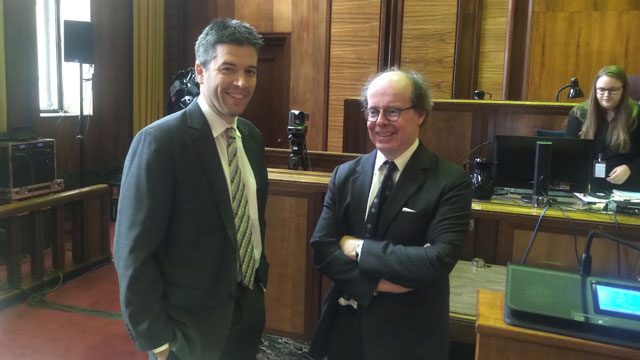
After trying unsuccessfully to have a Federal Court judge pause an order from the Canadian Human Rights Tribunal awarding billions of dollars to First Nations children, Canada has named two bureaucrats to negotiate potentially how the order will be carried out.
Marc Miller, minister of Indigenous Services Canada (ISC), followed through with a promise made at Assembly of First Nations (AFN) special chiefs assembly in December and appointed ISC Senior Assistant Deputy Minister Valerie Gideon and Justice Canada lawyer Robert Frater to sit down with parties at the tribunal to work out how many children need to be compensated and how they will be found.
Gideon is Mi’gmag from the Gesgapegiag First Nation in Quebec and is currently with the First Nations, Inuit Health Branch under ISC.
Her 299-page affidavit that was filed in Federal Court on behalf of the government in its quest for a stay on the tribunal’s Sept. 6 ruling, mainly focuses on her work with Jordan’s Principle and Canada’s efforts to improve that system.
Frater headed up the federal government’s failed effort to have the Federal Court put the tribunal’s ruling on hold until a judicial review was conducted.
Canada has always maintained that the tribunal overstepped its authority with its ruling that was handed down by commissioners Sophie Marchildon and Edward Lustig.
To date it has chosen to litigate rather than negotiate a settlement.
In Frater’s opening statement in federal court Nov. 25, the government claimed that compensating these children based on the tribunal’s order alone would do “irreparable harm” to Canada.
“This was a complaint about systemic under funding,” he said. “When you make a systemic complaint, you get a systemic remedy.”
“We say this remedy is inconsistent with the claim,” Frater said, adding that a stay in proceedings was requested in “the public interest,” because of the billions of dollars that could be paid out.
(Robert Frater, right, in Federal Court where he argued that the tribunal’s compensation ruling would cause “irreparable harm” to Canada. Photo: APTN file)
The federal government is continuing with its judicial review despite the appointment of Gideon and Frater.
“(The appointments) are simply a procedure not an outcome,” said Cindy Blackstock, executive director of the First Nations Child and Family Caring Society, who along with the AFN, launched the discrimination case against Canada back in 2007.
“What matters is progress and there is nothing to report on that front. The Caring Society won’t be commenting on any meetings until there is progress.”
No talks have taken place and none are scheduled as of this posting.
Both the government and AFN said in an emailed statement that any discussions that do take place “will be held on a strictly confidential basis and unless legally obligated, no party will be speaking publicly about the meetings.”
In a landmark ruling released on Jan. 26, 2016, the tribunal ruled that Canada discriminated against First Nations children on-reserve for purposely funding the agencies charged with helping them.
That finding of discrimination allowed the tribunal to award compensation.
(Tribunal commissioners Edward Lustig, left, and Sophie Marchildon during the hearing into whether Canada discriminates against First Nations child in care. Photo: APTN file)
The ruling by Marchildon and Lustig in September ordered the government to pay $20,000 in compensation to First Nations children taken by the child welfare system and removed from their homes or communities unnecessarily.
The commissioners also ordered Canada to pay an extra $20,000 because it found the government’s discriminatory policies towards First Nation children to be “reckless” and “wilful.”
The $40,000 in total is also being extended to the children’s parents or guardians.
Marchildon and Lustig also ordered compensation for children who had to leave their homes to access services that should have been covered under Jordan’s Principle.
Under Jordan’s Principle, either the federal or provincial governments are to provide a needed service and discuss who will pay for it at a later date.
The naming of two bureaucrats is the first time the federal government has acknowledged that it’s required to engage in talks since the tribunal found it guilty of discrimination.
The tribunal originally gave the parties until Dec. 10 to work out a plan on how to contact those who are eligible and how the compensation should be paid.
Because the government failed to engage with the parties, the date was extended until Jan. 29.













